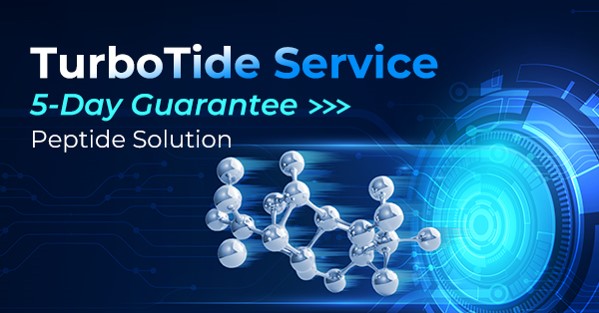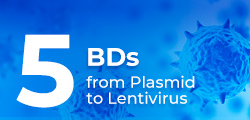-
REAGENT SERVICES
Hot!
-
Most Popular Services
-
Molecular Biology
-
Recombinant Antibody/Protein
-
Reagent Antibody
-
CRISPR Gene Editing
-
DNA Mutant Library
-
IVT RNA and LNP Formulations
-
Oligo Synthesis
-
Peptides
-
Cell Engineering
-
- Gene Synthesis FLASH Gene
- GenBrick™ Up to 200kb
- Gene Fragments Up to 3kb now
- Plasmid DNA Preparation Upgraded
- Cloning and Subcloning
- ORF cDNA Clones
- mRNA Plasmid Solutions New!
- Cell free mRNA Template New!
- AAV Plasmid Solutions New!
- Mutagenesis
- GenCircle™ Double-Stranded DNA New!
- GenSmart™ Online Tools
-
-
PRODUCTS
-
Most Popular Reagents
-
 Instruments
Instruments
-
Antibodies
-
ELISA Kits
-
Protein Electrophoresis and Blotting
-
Protein and Antibody Purification
-
Recombinant Proteins
-
Molecular Biology
-
Stable Cell Lines
-
Cell Isolation and Activation
-
 IVD Raw Materials
IVD Raw Materials
-
 Therapy Applications
Therapy Applications
-
Resources
-
- All Instruments
- Automated Protein and Antibody Purification SystemNew!
- Automated Plasmid MaxiprepHot!
- Automated Plasmid/Protein/Antibody Mini-scale Purification
- eBlot™ Protein Transfer System
- eStain™ Protein Staining System
- eZwest™ Lite Automated Western Blotting Device
- CytoSinct™ 1000 Cell Isolation Instrument
-
- Pharmacokinetics and Immunogenicity ELISA Kits
- Viral Titration QC ELISA Kits
- -- Lentivirus Titer p24 ELISA KitHot!
- -- MuLV Titer p30 ELISA KitNew!
- -- AAV2 and AAVX Titer Capsid ELISA Kits
- Residual Detection ELISA Kits
- -- T7 RNA Polymerase ELISA KitNew!
- -- BSA ELISA Kit, 2G
- -- Cas9 ELISA KitHot!
- -- Protein A ELISA KitHot!
- -- His tagged protein detection & purification
- dsRNA ELISA Kit
- Endonuclease ELISA Kit
- COVID-19 Detection cPass™ Technology Kits
-
- Automated Maxi-Plasmid PurificationHot!
- Automated Mini-Plasmid PurificationNew!
- PCR Reagents
- S.marcescens Nuclease Benz-Neburase™
- DNA Assembly GenBuilder™
- Cas9 / Cas12a / Cas13a Nucleases
- Base and Prime Editing Nucleases
- GMP Cas9 Nucleases
- CRISPR sgRNA Synthesis
- HDR Knock-in Template
- CRISPR Gene Editing Kits and Antibodies
-
![AmMag™ Quatro Automated Plasmid Purification]() AmMag™ Quatro automated plasmid purification
AmMag™ Quatro automated plasmid purification
-
![Anti-Camelid VHH]() MonoRab™ Anti-VHH Antibodies
MonoRab™ Anti-VHH Antibodies
-
![ELISA Kits]() ELISA Kits
ELISA Kits
-
![Precast Gels]() SurePAGE™ Precast Gels
SurePAGE™ Precast Gels
-
![Quatro ProAb Automated Protein and Antibody Purification System]() AmMag™ Quatro ProAb Automated Protein and Antibody Purification System
AmMag™ Quatro ProAb Automated Protein and Antibody Purification System
-
![Target Proteins]() Target Proteins
Target Proteins
-
![AmMag™ Quatro Automated Plasmid Purification]() AmMag™ Quatro automated plasmid purification
AmMag™ Quatro automated plasmid purification
-
![Stable Cell Lines]() Stable Cell Lines
Stable Cell Lines
-
![Cell Isolation and Activation]() Cell Isolation and Activation
Cell Isolation and Activation
-
 IVD Raw Materials
IVD Raw Materials
-
![Quick
Order]() Quick Order
Quick Order
-
![Quick
Order]() Quick Order
Quick Order
- APPLICATIONS
- RESOURCES
- ABOUT US
- SIGN IN My Account SIGN OUT
- REGISTER

![One-Stop Solutions for Antibody Drug Discovery One-Stop Solutions for Antibody Drug Discovery]()
One-Stop Solutions for Antibody Drug Discovery
Make Therapeutic Antibodies Simple, Fast, and Safe
News & Blogs » Antibody Drug Development News » Hope for cancer patients: an immune-boosting protein without side effects created
Hope for Cancer Patients: an Immune-boosting Protein without Side Effects Created
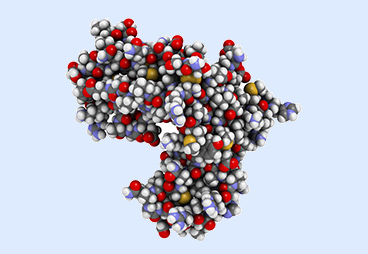 Interleukin-2 (IL-2) plays a key role in directing the body’s immune
response to cope with invaders. As a cytokine, IL-2 ramps up the
activity of white blood cells known as T lymphocytes by binding
simultaneously to their IL-2β and IL-2γ receptors. In cells where a
third type of receptor, IL-2α, is present, IL-2 binds collectively
to all three receptors. In other white blood cells, this binding
dampens the body’s immune response, but since this binding also
occurs in blood vessel cells, it can lead to vessel leakage and
death.
Interleukin-2 (IL-2) plays a key role in directing the body’s immune
response to cope with invaders. As a cytokine, IL-2 ramps up the
activity of white blood cells known as T lymphocytes by binding
simultaneously to their IL-2β and IL-2γ receptors. In cells where a
third type of receptor, IL-2α, is present, IL-2 binds collectively
to all three receptors. In other white blood cells, this binding
dampens the body’s immune response, but since this binding also
occurs in blood vessel cells, it can lead to vessel leakage and
death.
Efforts to optimize IL-2 towards making it safer and more effective has been going on for more than 30 years. However, because IL-2 is an unstable molecule and stops working when its normal 3D shape changes, optimizing it through mutations can further destabilize its structure. The current success at optimizing IL-2 comes from using the Rosetta software which could mutate the protein such that the resultant protein, named Neo-2/15, could only bind to β and γ receptors, but not to α receptors.
Results from studies in mouse models of colon cancer and melanoma have so far shown that this protein can reduce the side effects associated with α receptors while strongly inhibiting tumor growth, and in some instances, totally eliminating tumors. Findings of this study published in Nature by the University of Washington (UW) researchers, showed that compared to the optimized Il-2, the regular IL-2 given to cancer-carrying mice didn’t show the same effects.
UW has licensed Neo-2/15 to a Seattle startup-Neoleukin Therapeutics to bring it to clinical trials. Currently researchers at the company are exploring how antibodies might target the protein in the tumors rather than normal cells to avoid initiating an autoimmune response.
Subscribe to Receive Updates
& Promotions From GenScript* We'll never share your email address with a third-party.
Latest News & Blogs
Find More Antibody drug development News
From Bispecific to Trispecific Antibodies in Cancer Immunotherapy
Apr 19, 2021

Biogen's Antibody for Alzheimer's Disease
Dec 07, 2020
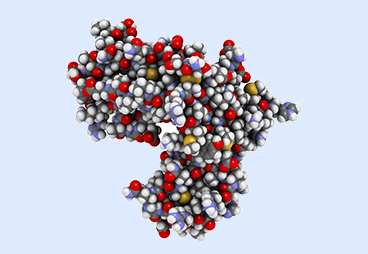
Hope for cancer patients: an immune-boosting protein without side effects created
Jan 22, 2019

As a Gene Cell therapy deliver, mRNA is a more efficient coding language.
Dec 28, 2018
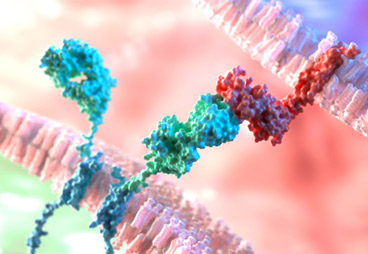
Successful Clinical Results for a Novel CAR-T Cell Therapy: Is the Cure for Advanced Myeloma Patients within Our Reach?
Dec 10, 2018

J&J to Build Blood-Cancer Push With Controversial China Biotech
Dec 04, 2018

-








